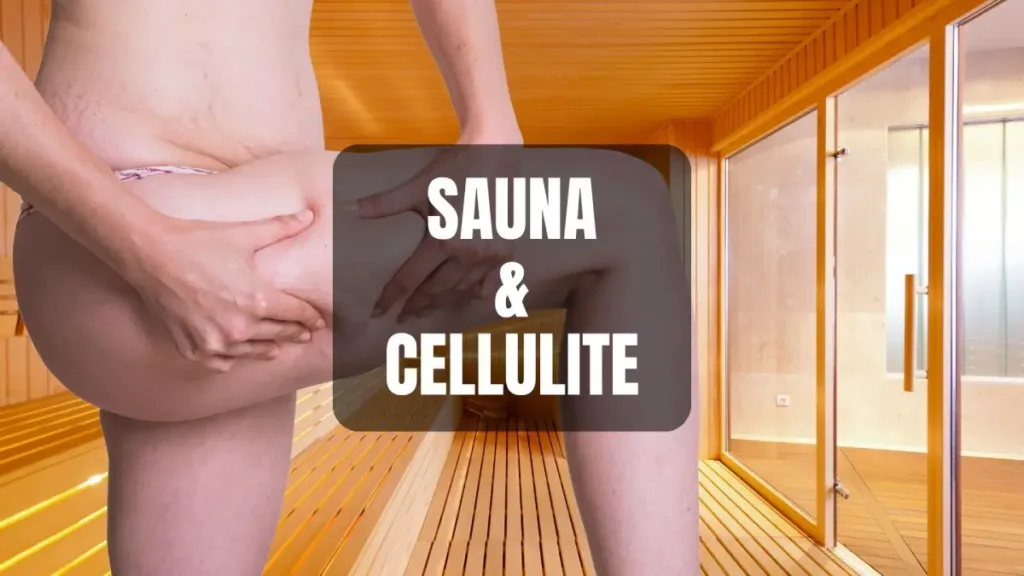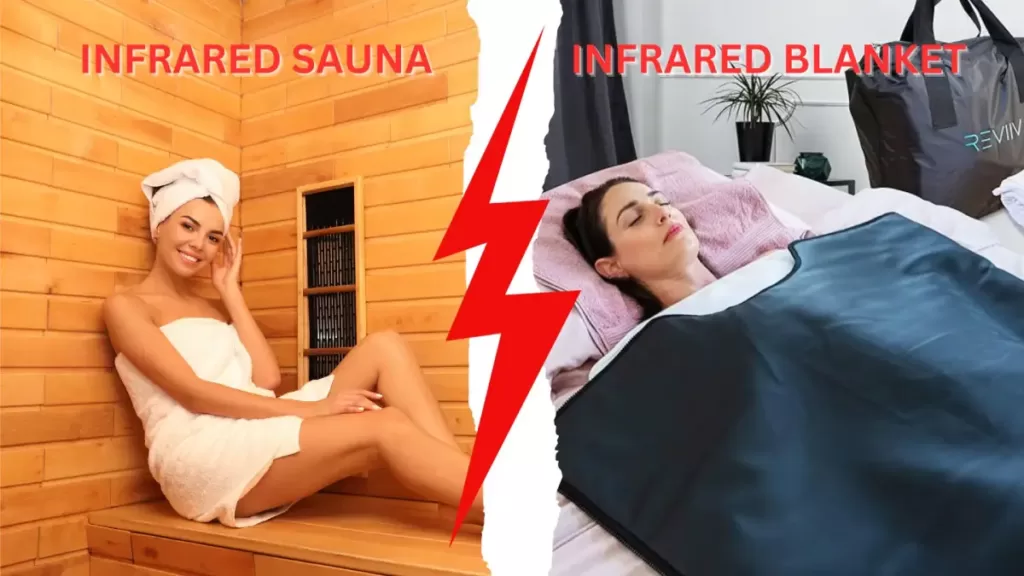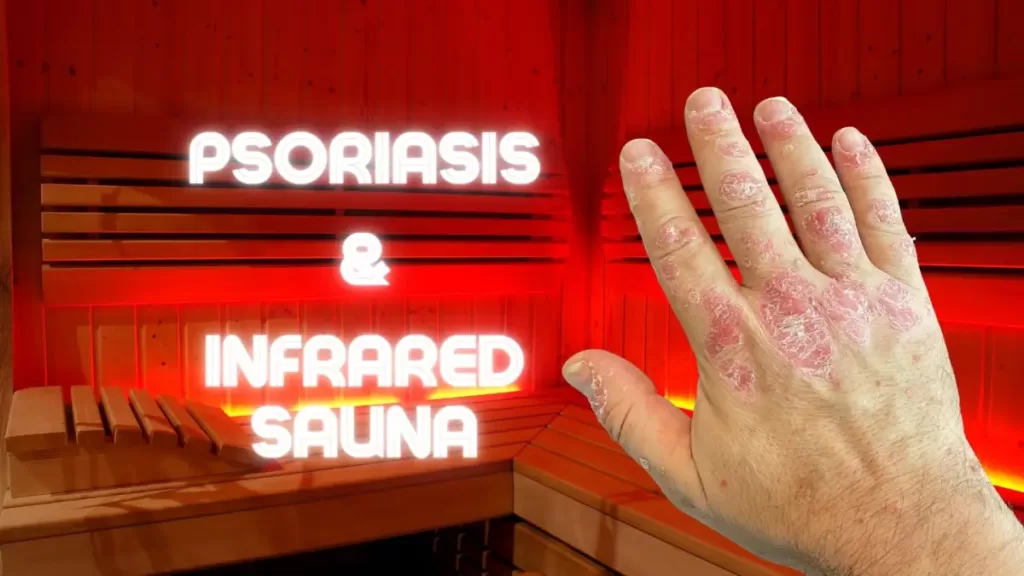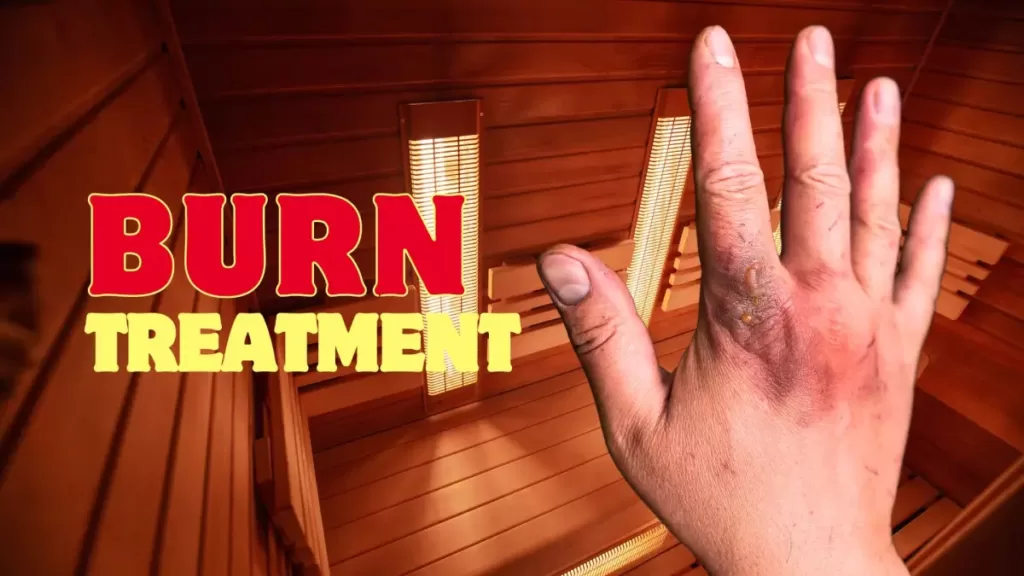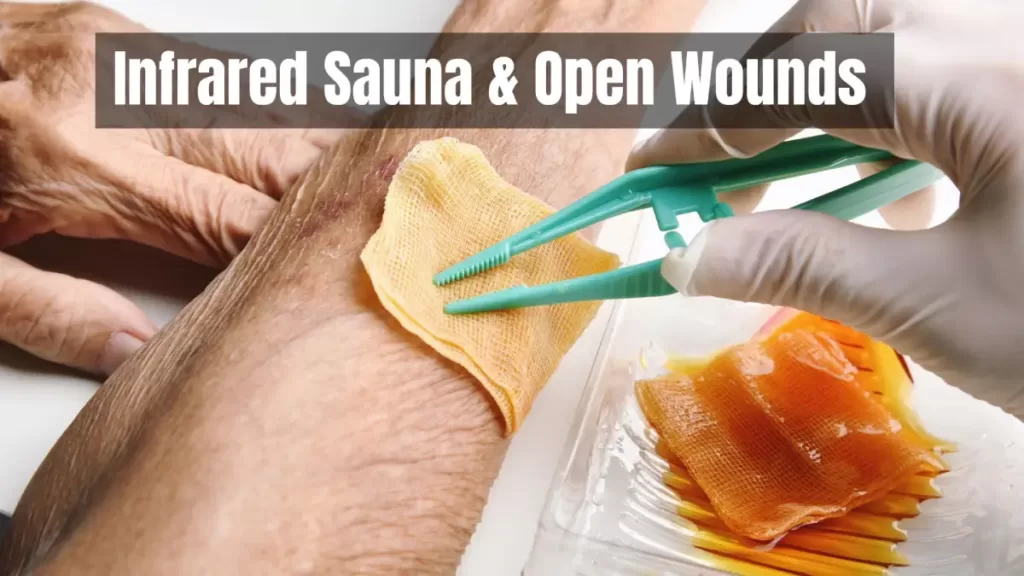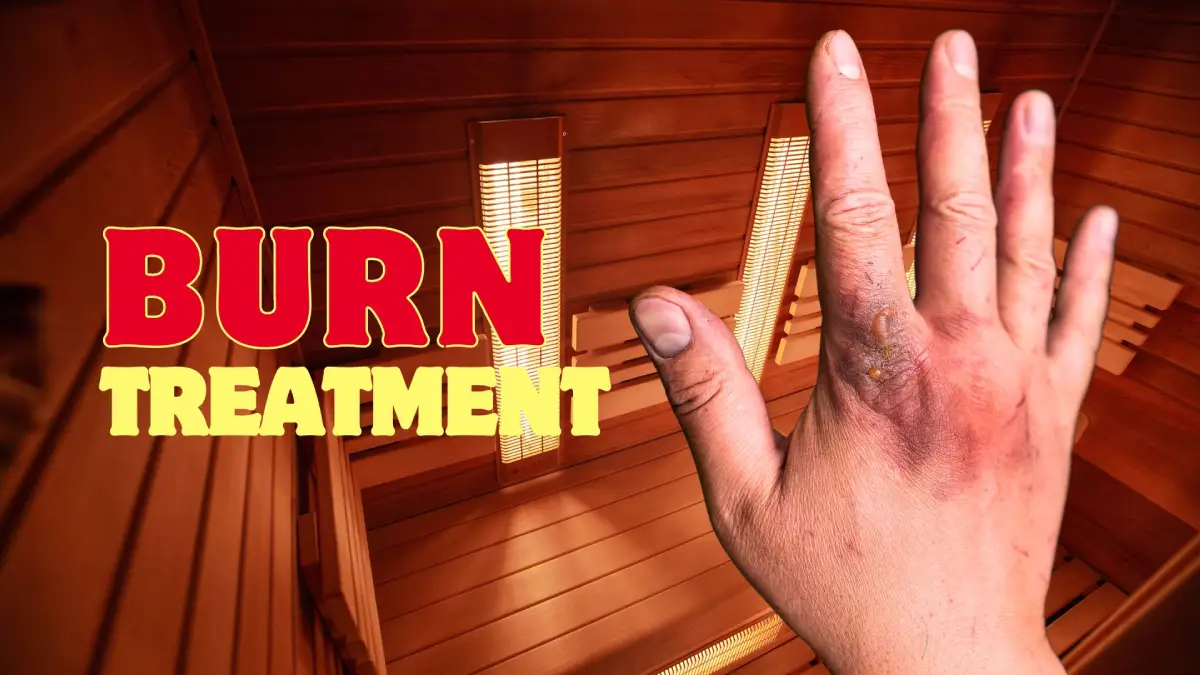
The Healing Powers of Infrared Sauna for Burn Treatment
Understanding Infrared Sauna Therapy
The therapeutic practice of infrared sauna therapy unfolds in a manner strikingly distinct from the customary saunas. Instead of enveloping you with heated air, typical to conventional steam saunas, it applies infrared light waves that delve straight into your body. This direct heat application leads to perspiration at lower and more agreeable temperatures while still delivering an exceptionally healthful experience.
This restorative process unfurls by radiating aforementioned infrared light waves, which our bodies interpret as radiant warmth. Contrary to merely heating up the skin’s surface, these waves infiltrate profoundly into muscles and joints – stimulating circulation and aiding the body in expelling toxins through sweat. Consequently, sessions under an infrared sauna bestow numerous health boons encompassing pain relief, immune system enhancement, better cardiovascular health and assistance in burns recuperation.
The Science Behind Infrared Saunas
The workings of infrared saunas, in their profound divergence from conventional steam-based versions, may baffle the uninitiated. Unraveling this conundrum necessitates a foray into the realm of science that undergirds these contraptions. Unlike orthodox saunas that rely on air-heating to instigate perspiration, infrared counterparts employ light waves within the infrared spectrum, which invade the human physique directly. This phenomenon has gained currency as “deep heat,” effectuating an intense yet tender thermal sensation at a cellular dimension.
This immediate mode of heat delivery is not without its therapeutic virtues – factors contributing to its suitability for burn treatment. The detoxification process crucial to burn management finds considerable bolsterage in the heightened sweat production brought about by infrared saunas. Interestingly enough, it’s postulated that this profuse perspiration ushers toxins out of our system. Furthermore, novel infrared technology lends impetus to blood circulation enhancement – a development instrumental in hastening healing and cell regeneration processes. Henceforth emerges an eclectic fusion between deep-heat science and innate bodily recuperative prowess – embodied exquisitely by progressive applications of infrared sauna therapy.
Burn Injuries: An Overview
The trauma of burn injuries plunges into a realm of profound devastation and intricate complexity, leaving an indelible psychological and physiological impact. Burn wounds manifest in diverse forms, varying in their depth, extent, and severity. The path to recuperation from these afflictions is fraught with challenges that can be both physically painful and mentally taxing.
A comprehensive approach towards care involves meticulous wound cleaning, diligent dressing changes, judicious medication administration, skilful skin grafting procedures, and rigorous physical therapy sessions. Yet despite the progress of medical science over time, patients often grapple with inflammation issues or scar tissues formation problems. Infections are another recurrent nemesis while amputation lurks as a grim possibility in severe cases.
Of late however there has been an intriguing exploration by experts into the therapeutic potentialities offered by Infrared Sauna for treating burns – an avant-garde development in burn care techniques. The underlying principle hinges on harnessing infrared rays’ penetrative prowess to delve deep within the skin layers thereby instigating cell stimulation at tissue level.
This stimulated activity aids oxygen-rich blood circulation to reach out to damaged tissues thus enhancing healing while diminishing inflammation simultaneously – a dual benefit indeed! Furthermore observational evidence suggests this method’s efficacy in managing pain effectively along with reducing scarring making it critical components integral to any successful treatment regime for burns.
In essence then infrared saunas could well serve as pivotal instruments shaping the future trajectory of management protocols employed for burn injury recovery process.
Infrared Sauna: A New Approach to Burn Care
In the multifaceted universe of healthcare and healing methodologies, an avant-garde solution has emerged from under the radar – the infrared sauna. This tool is a game-changer in burn care, employing light to generate heat that penetrates not just skin but muscle and bone too. The result? An acceleration of natural healing processes within our bodies. Enhanced patient comfort and diminished reliance on painkillers are merely scratching the surface when it comes to potential benefits.
Contrary to conventional saunas that warm up surrounding air, this innovative creation heats up the body directly. It delivers a deep-seated warmth capable of performing miracles for patients with burns—alleviating discomfort and augmenting scar tissue elasticity. Moreover, this approach can be tailored individually by adjusting both wavelength of light exposure duration for optimum treatment results.
Indeed, it’s an exciting advancement in medical circles—a beacon promising more effective as well as patient-friendly modes of treatment for burn injuries.
Mechanism of Infrared Sauna in Burn Healing
Deep comprehension of the mechanics behind infrared sauna’s role in burn healing is a pivotal milestone for enhancing our understanding of progressive thermal therapies. In clinical environments, the popularity of low-level infrared therapy has surged, primarily due to its distinctive capacity to infiltrate human tissue layers profoundly.
Unlike conventional ultrasound-based treatments, this unobtrusive light from the infrared spectrum can subtly amplify blood flow and spur cell renewal. This results in expedited burn recovery processes. The therapeutic prowess inherent within an infrared sauna is rooted in this unique light’s ability to invigorate the body’s innate restorative mechanisms at a microscopic level.
The damaged skin cells are precisely targeted by this light, inciting a stress response that propels faster cellular regeneration. This accelerated process aids quicker repair of burnt skin through forming new and healthy cells. Furthermore, increased blood circulation ensures more oxygen and crucial nutrients reach the wound site – thus providing additional sustenance to injured areas and encouraging swifter and more efficient recuperation.
Such innovative use of thermal light highlights potential future trajectories for technology applied to burn healing treatment methodologies.
Thermal Therapy: The Role of Infrared Sauna in Pain Management
The realm of pain management is experiencing a profound perplexity, finding itself entwined with the burgeoning force that is infrared sauna therapy – particularly in the domain of burn injury recovery. At its core, this modality operates via emission of far-infrared frequency within a specific spectrum which deeply infiltrates bodily tissues. The resulting stimulation to the circulatory system fortifies innate healing prowess.
An intriguing facet of this process lies in the body’s own response: endorphin release. These natural analgesics birthed from our brain offers non-pharmaceutical relief to those grappling with discomfort, an effect directly facilitated by deep-penetrating heat.
Moreover, thermal therapy finds a unique niche within infrared sauna utility; serving dual roles as both pain alleviator and catalyst for accelerated healing. A surge in circulation not only nourishes wounded tissue but also expedite waste product removal – components essential for efficacious overall healing.
Burn victims find solace amid gentle heat waves emanating from saunas; offering them an environment imbued with soothing qualities that can potentially alleviate pain linked to their ongoing wound recuperation journey. In essence, when it comes to augmenting burn care through effective pain management strategies, one cannot overlook or underestimate the promising potential embodied by infrared saunas.
Benefits of Infrared Sauna in Skin Regeneration Post Burn
The role of infrared saunas in fostering skin rejuvenation post burn injuries, a topic that has recently been beset with an uptick in interest. The inherent qualities of infrared light invoke the body’s organic healing mechanisms—an invaluable boon for victims of burns grappling with skin degeneration. The sauna’s deep-seated warmth enhances the vascular functions within the skin, thus escalating oxygen and nutrient transport to affected regions. By boosting circulation, this greatly facilitates tissue repair processes—propelling swift recovery and contributing to overall superior skin health.
Infrared sauna therapy also shines due to its potential to stimulate collagen production—a vital protein responsible for maintaining skin elasticity and firmness which unfortunately depletes following burn injuries. The assistance from infrared therapy leads to amplified rates of collagen synthesis—an integral factor for restructuring the dermis layer as well as minimizing scar tissue buildup. Furthermore, experiencing the soft yet radiant heat emitted by an infrared sauna can offer solace from surface-level discomfort typically encountered during burn wound healing.
Infrared Sauna and Improved Circulation for Burn Recovery
The intriguing process of burn recovery finds an indispensable ally in enhanced blood circulation. The application of an infrared sauna emerges as a potent tool to amplify this critical aspect of healing. As the radiant warmth from the infrared sauna seeps into your very core, it nurtures and encourages the expansion of your tiny blood vessels. This dilation forms a wider conduit for nutrient-rich blood to rush towards damaged tissue, thus fostering faster and healthier mending of burn wounds.
Moreover, there’s an unexpected byproduct that comes with the heat generated by infrared sauna therapy – it triggers a cardiovascular response within our bodies! It mirrors what happens during light-to-moderate exercise, prompting your body to respond by accelerating heart rate which results in expeditious circulation throughout every part of you. This swift flow is instrumental in ferrying essential nutrients and oxygen right up to those burn sites, reinforcing your body’s inherent regenerative powers.
This juxtaposition of benefits makes one wonder about why we haven’t been talking more about infrared saunas! A compelling treatment indeed for enhancing burn recovery; shedding new light on how we perceive convalescence.
Case Studies: Infrared Sauna Therapy for Burn Patients
In recent chronicles, the fraternity of medicine has witnessed a handful of intriguing case studies where infrared sauna therapy has borne fruitful outcomes in boosting the healing process in burn victims. Take for example, a 2016 research paper published under the esteemed Journal of Burn Care & Research that shed light on health progression narratives of burn victims who incorporated infrared sauna as an integral part of their rehabilitation endeavor. The findings unveiled a remarkable escalation in wound healing rates and overall dermal health. Furthermore, patients testified to experiencing diminished pain and discomfort, underscoring the efficacy of this approach in managing post-burn distress.
A second compelling instance found its way into a 2018 study featured in the International Journal of Hyperthermia. Herein, the patient with second-degree burns displayed significantly enhanced skin regeneration subsequent to undergoing treatments via an infrared sauna. The therapeutic use of infrared not only served to shrink both scar size and intensity but also amplified skin elasticity alongside refining overall aesthetics upon recovery. Intriguingly enough, this particular scenario saw therapists employing infrared sauna therapy not merely for physical betterment but also for its potential role in uplifting patient’s psychological welfare due to less stigma attached with well-healed scars. These instances collectively offer just a glimpse into what seems like an optimistic future role played by Infrared Sauna Therapy when it comes to care provision for burn patients.
Safety Measures: Using Infrared Sauna for Burn Treatment
In the labyrinth of burn treatment methodologies, the infrared sauna emerges as a curious possibility. Yet navigating this path necessitates an unwavering adherence to safety protocols, for it is here that patient wellbeing precariously balances.
Imagine those with severe burns or skin conditions venturing into the realm of infrared saunas. Their journey should not be solitary; rather, they must be under the vigilant watch of professional healthcare providers. Only these seasoned navigators can chart out their voyage by determining session duration and frequency – taking into account not just health status and burn severity but also heat tolerance.
Venture further down this path and you encounter another checkpoint: temperature control within the sauna’s confines. Herein lies a paradox — too much heat can scald already damaged skin while optimal levels can foster healing. The balance? Ensuring temperatures do not exceed recommended limits.
Water then becomes our ally in this expedition. Proper hydration before and after each session counters dehydration risks brought about by intensified sweating – an inherent aspect of infrared therapy which simultaneously aids detoxification.
And finally, we arrive at positioning – a critical maneuver that shields direct wounds from prolonged exposure to intense infrared heat.
Thus threaded together, these precautionary measures form a secure harness around potential benefits bestowed by infrared saunas in treating burns without inflicting additional harm on patients’ recovery pathway.
Infrared Sauna Therapy VS Traditional Burn Treatments
Traditional burn remedies have typically encompassed immediate wound attention, pain alleviation, and in extreme instances, skin transplants or reconstructive surgery. These techniques are effective but can be agonizingly intrusive and necessitate significant recuperation time, further intensifying the patient’s suffering. The innate possibility of complications or infections associated with these interventions cannot be dismissed.
On the other hand, infrared sauna therapy offers a non-invasive alternative that takes advantage of the therapeutic potential of infrared light. Infrared energy is conveyed as heat penetrates profoundly into tissues thus encouraging enhanced circulation and cellular rejuvenation. This aids in relieving pain and fast-tracking healing in affected areas hence augmenting recovery. Contrary to traditional treatments, infrared sauna therapy presents minimal risk for complications or side effects which makes it a safer yet effective option for burn care.
Incorporating Infrared Sauna into a Comprehensive Burn Treatment Plan
An intricate plan for burn treatment seeks to mend the damaged dermis, rein in pain, ward off infections and minimize scar formation. Among the myriad of tools available for this purpose, infrared sauna therapy shines through with its significant contributions towards these objectives. This non-invasive modality can be tailored according to individual patient needs, making it an indispensable aspect of a personalized holistic approach in managing burns. Its incorporation into comprehensive plans may manifest in various ways – from exclusive sessions within an infrared sauna to amalgamating heat therapy with conventional wound dressings.
Incorporating infrared sauna therapy in a treatment blueprint provides numerous advantages for patients. The triggering of heat-shock proteins sets off a chain reaction at the cellular level akin to our body’s inherent response when faced with heat stress such as during exercise or fever bouts. Additionally, sustained exposure to infrared rays could invigorate blood flow towards the afflicted area which might hasten healing while reducing chances of infection or further tissue harm. Of utmost importance is that infrared therapy offers solace from pain – arguably one of the most formidable hurdles in burn management. By harnessing both traditional treatments along with cutting-edge therapies like infrared sauna therapy, we are poised on the brink of transforming how burn care is managed globally across hospitals and clinics.
Future of Burn Treatment: Potential of Infrared Sauna Therapy
As we foray into the uncharted expanse of burn treatment, infrared sauna therapy emerges like a beacon of hope. Harmonizing traditional healing methods with technological progress, this therapy broadcasts its potential to expedite recovery, alleviate pain and enhance scar aesthetics. However, despite the invigorating possibilities it unveils, meticulous exploration into long-term impacts, ideal usage and precise mechanisms underpinning infrared sauna therapy is indispensable. Such investigations lay the foundation for integrating this cutting-edge tool more frequently within conventional burn treatments.
Moreover, as our comprehension of infrared sauna therapy broadens like ripples in a pond, so does the chance to craft tailored treatment plans. Every victim of burns presents unique challenges – varying degrees of injury severity; diverse healing speeds; different thresholds of pain tolerance. The inherent adaptability offered by infrared sauna therapy to match individual needs heralds an encouraging prospect that augurs well for its imminent application. Steered by ongoing research efforts and growing acceptance among patients alike,this novel approach may indeed redefine how we perceive and manage burn care in times ahead.
SOURCE
How does skin work? (n.d.). Retrieved September 07, 2016, from http://www.ncbi.nlm.nih.gov/pubmedhealth/PMH0072439/.
Yu, S., Chiu, J., Yang, S., Hsu, Y., Lui, W., & Wu, C. (2006). The biological effect of far-infrared therapy on increasing skin microcirculation in rats. Photoderm Photoimm Photomed Photodermatology, Photoimmunology and Photomedicine, 22(2), 78-86. doi:10.1111/j.1600-0781.2006.00208.x.
Toyokawa, H., Matsui, Y., Uhara, J., Tsuchiya, H., Teshima, S., Nakanishi, H., . . . Kamiyama, Y. (2003). Promotive effects of far-infrared ray on full-thickness skin wound healing in rats. Exp Biol Med (Maywood), 228(6), 724-729.
Whelan, H. T., Smits, R. L., Buchman, E. V., Whelan, N. T., Turner, S. G., Margolis, D. A., . . . Caviness, J. (2001). Effect of NASA Light-Emitting Diode Irradiation on Wound Healing. J Clin Laser Med Surg Journal of Clinical Laser Medicine Surgery, 19(6), 305-314. doi:10.1089/104454701753342758.
Read also our previous post:
FAQ
Might you enlighten me about Infrared Sauna Therapy?
Could you explain how these Infrared Saunas function?
Can this Infrared Sauna Therapy prove beneficial to burn injuries?
How does it assist with burn wound healing?
Is there potential for using Infrared Sauna Therapy as a method for managing pain from burn injuries?
Are there any safety precautions one should bear in mind when resorting to an Infra-red sauna treatment for burns?
How does Infrared Sauna Therapy compare with traditional burn treatments?
What manner of incorporation into a comprehensive burn treatment plan can be expected from Infrared Sauna Therapy?
Could you shed light on likely future applications of this curious Infra-red sauna therapy within the realm of treating burns?
Let's talk on Zoom!
Book your appointment on Zoom now to take your productivity to new heights and achieve your goals.
Click HereBlog posts
-
 Sweat Your Way to Success: Infrared Saunas as Your Ally in the Battle Against Cellulite07 Jan 2024
Sweat Your Way to Success: Infrared Saunas as Your Ally in the Battle Against Cellulite07 Jan 2024 -
 A Guide to Safe Sauna Use for Asthmatics02 Jan 2024
A Guide to Safe Sauna Use for Asthmatics02 Jan 2024 -
 Infrared Sauna Trends to Watch in 202429 Dec 2023
Infrared Sauna Trends to Watch in 202429 Dec 2023 -
 Can Infrared Saunas Help with Acne?24 Dec 2023
Can Infrared Saunas Help with Acne?24 Dec 2023 -
 Melt Away the World: Dive into the Warmth and Tradition of a Finnish Christmas Sauna22 Dec 2023
Melt Away the World: Dive into the Warmth and Tradition of a Finnish Christmas Sauna22 Dec 2023 -
 Ten of the Most Extraordinary Saunas in the World20 Dec 2023
Ten of the Most Extraordinary Saunas in the World20 Dec 2023 -
 Sauna Safety During Pregnancy: A Trimester-by-Trimester Guide02 Dec 2023
Sauna Safety During Pregnancy: A Trimester-by-Trimester Guide02 Dec 2023 -
 Sauna Etiquette: Do's and Don'ts30 Nov 2023
Sauna Etiquette: Do's and Don'ts30 Nov 2023 -
 Experience Relief: Infrared Sauna Rosacea Treatment Options28 Nov 2023
Experience Relief: Infrared Sauna Rosacea Treatment Options28 Nov 2023 -
 Unlock Sauna Skin Benefits for Radiant, Healthy Glow25 Nov 2023
Unlock Sauna Skin Benefits for Radiant, Healthy Glow25 Nov 2023 -
 Infrared Blanket vs Infrared Sauna18 Nov 2023
Infrared Blanket vs Infrared Sauna18 Nov 2023 -
 Is A Sauna Good For COVID?14 Nov 2023
Is A Sauna Good For COVID?14 Nov 2023 -
 Does Infrared Sauna Help Psoriasis?12 Nov 2023
Does Infrared Sauna Help Psoriasis?12 Nov 2023 -
 The Healing Powers of Infrared Sauna for Burn Treatment07 Nov 2023
The Healing Powers of Infrared Sauna for Burn Treatment07 Nov 2023 -
 Will an infrared sauna improve the open wounds of a person with diabetes?04 Nov 2023
Will an infrared sauna improve the open wounds of a person with diabetes?04 Nov 2023 -
 Tips for sauna relaxation29 Oct 2023
Tips for sauna relaxation29 Oct 2023 -
 Traditional Saunas Or Infrared Saunas For Children25 Oct 2023
Traditional Saunas Or Infrared Saunas For Children25 Oct 2023 -
 How Infrared Saunas Can Help with Chronic Pain23 Oct 2023
How Infrared Saunas Can Help with Chronic Pain23 Oct 2023 -
 Skin Benefits of Infrared Saunas20 Oct 2023
Skin Benefits of Infrared Saunas20 Oct 2023 -
 Infrared Saunas for Athletes: Can Athletes Benefit From Using Infrared Saunas?12 Oct 2023
Infrared Saunas for Athletes: Can Athletes Benefit From Using Infrared Saunas?12 Oct 2023 -
 What Should I Do Immediately After a Sauna?09 Oct 2023
What Should I Do Immediately After a Sauna?09 Oct 2023 -
 Infrared Saunas During Pregnancy: Safety, Precautions, and Benefits06 Oct 2023
Infrared Saunas During Pregnancy: Safety, Precautions, and Benefits06 Oct 2023 -
 Infrared sauna weight loss - Acts or fictions?02 Oct 2023
Infrared sauna weight loss - Acts or fictions?02 Oct 2023 -
 Infrared Sauna and Anti-Aging29 Sep 2023
Infrared Sauna and Anti-Aging29 Sep 2023 -
 Infrared Sauna Temperature and Time Recommendations for Beginners26 Sep 2023
Infrared Sauna Temperature and Time Recommendations for Beginners26 Sep 2023 -
 Duetto Sauna Infrared Heaters is The Safe Choice for Combining Infrared and Finnish Saunas23 Sep 2023
Duetto Sauna Infrared Heaters is The Safe Choice for Combining Infrared and Finnish Saunas23 Sep 2023 -
 Infrared Sauna Therapy - A Promising Ally Against Cardiovascular Diseases in the UAE21 Sep 2023
Infrared Sauna Therapy - A Promising Ally Against Cardiovascular Diseases in the UAE21 Sep 2023 -
 The Fusion of Sauna and Yoga with Infrared Heat18 Sep 2023
The Fusion of Sauna and Yoga with Infrared Heat18 Sep 2023 -
 11 reasons why you should invest in an Infrared Sauna Heater16 Sep 2023
11 reasons why you should invest in an Infrared Sauna Heater16 Sep 2023 -
 Why Infrared Sauna Heaters are Simply Incredible14 Sep 2023
Why Infrared Sauna Heaters are Simply Incredible14 Sep 2023 -
 The Ultimate Guide to Finnish Saunas04 Sep 2023
The Ultimate Guide to Finnish Saunas04 Sep 2023 -
 FINNISH SAUNA VS. INFRARED SAUNA04 Sep 2023
FINNISH SAUNA VS. INFRARED SAUNA04 Sep 2023 -
 Combination of Finnish and Infrared sauna!01 Sep 2023
Combination of Finnish and Infrared sauna!01 Sep 2023

